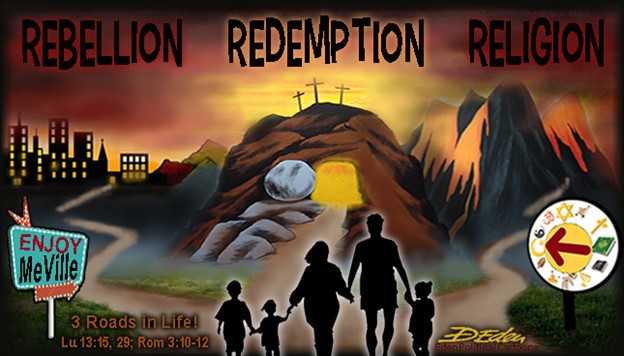By Dave Eden, Eden Political Cartoons

Let’s remember what the definition of “religion” is. In its purest, most technical definition, religion simply refers to any process that finds a set of answers to the big questions: why are we here? What is the purpose of my life? What is the most valuable thing that I could be doing with my limited time on earth? The list of big questions goes on.
Works-based religion — where it’s all about keeping score and knowing who’s good and bad and building up a resume of virtues until you have enough credit in your account to earn God’s favor — always leads to a sense of superiority among those who practice it. It has to; that is the only logical conclusion of works-based religion.
However, even secularism leads to the same arrogant superiority as works-based religion. All the little precepts of what makes you “cool” or all the trendy, moral/social justice checklists of secular culture — i.e. what makes you an acceptable, good person in the eyes of secular society — add up to just another works-based religion, but without all the ceremonial trappings of churches and religious terminology.
The Gospel — i.e., grace-based religion — is the only set of exclusive beliefs (and everyone has a set of exclusive beliefs) that leads the person to expect that others can and will be better than you morally. The whole point of the Gospel is that all of us have “fallen short of the glory of God” on the same fundamental level, so none of us — no matter what external moral behavior we have — can claim any better position than someone else. In fact, we see that God can and often takes those who are total moral failures in the eyes of works-based religious people and transforms them into the mightiest of saints by the supernatural power of His grace.
In other words, a heart and mind that have fully grasped and digested the Gospel will never look down on anybody no matter who they are — whether they’re secular, religious, conservative, liberal, sinner, saint. The Gospel strips away all of our little titles that we cling to and replaces them with one title and identity: SAVED BY GRACE.
Every other system of thought — whether works-based religion or the many secular modes of works-based systems — leads you to believe that you’ll be better than the people who don’t believe the things that you believe. But the Gospel says to us, “I know you’re tempted to look at that other person and think, ‘wow, are they a mess,’ but if not for grace, you could have been much worse than them.”
It transforms our identity and self-perception. You begin to see every attribute as GRACE, not as a mark of superiority.
-Tim Keller
